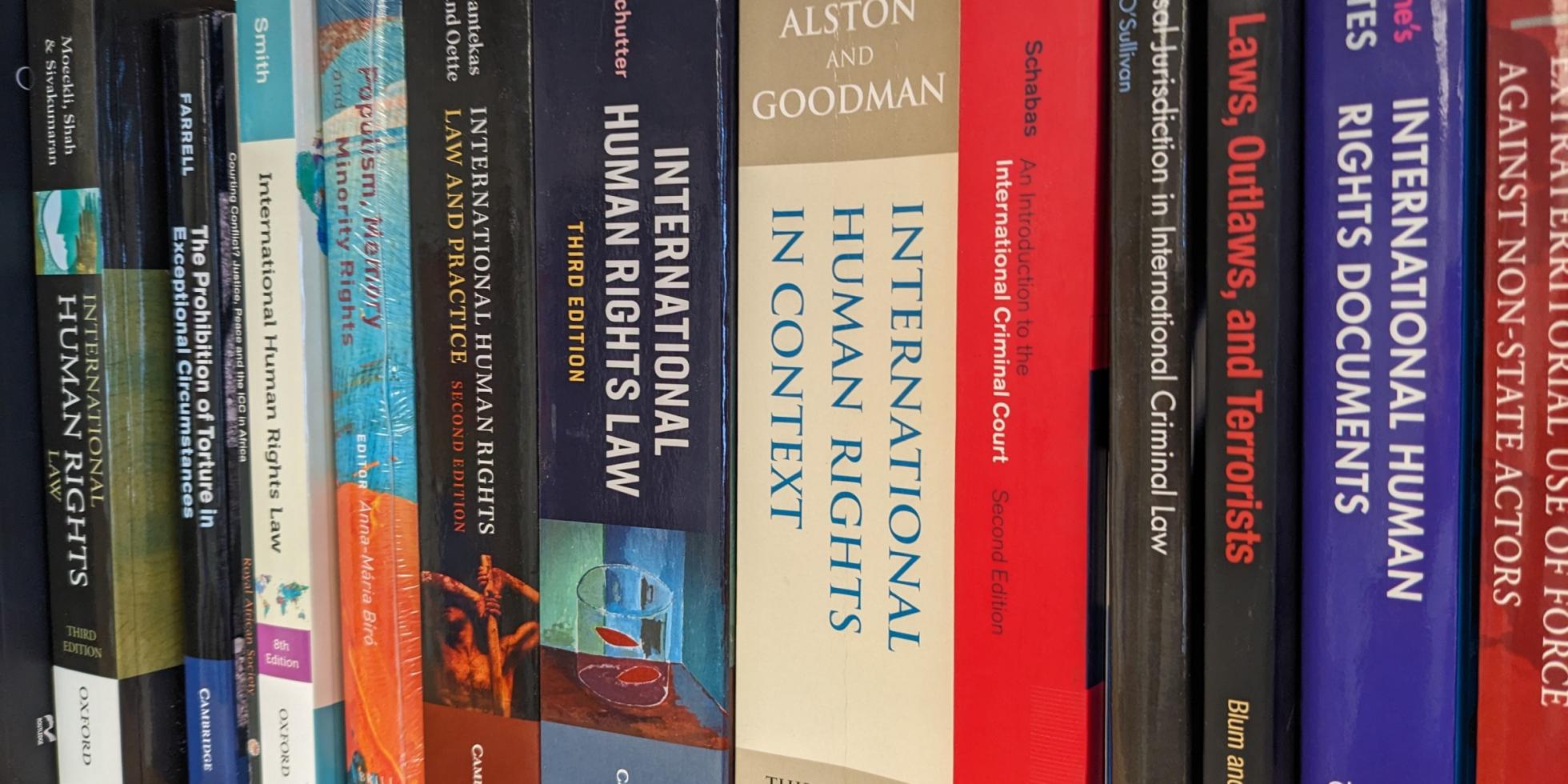The virtual human rights library brings together resources from multiple libraries and information services, both internal and external, to create an online hub dedicated to the study of human rights. This curation is unique in its interdisciplinary concerns and focuses on writings and research from social sciences, humanities, and law.
The virtual library is continually updated with the latest academic research in issue areas, as well as with relevant films, recorded conversations, and other forms of media.
Please Note:
The Virtual Library is usable by all visitors, but the hyperlinks to materials listed are for UChicago community members with a CNet ID and password.
Please direct feedback and suggestions to Kathleen Cavanaugh.
For technical assistance, email pozenhumanrights @ uchicago.edu.
Searchable Database
Click into the dropdowns to select the disciplines, keywords, and media type for your search, and then hit "Apply."
"Justiciability as field effect: When sociology meets human rights."
We focus on a central aspect of Blau and Moncada's argument: that a wider range of human rights violations ought to be regarded as justiciable, legally actionable, and formally criminalized. Although we share their normative goals, the turn to law...
"Legal factors, extra-legal factors, or changes in the law? Using criminal justice research to understand the resolution of sexual harassment complaints."
Much of what is known about how the law operates is based on the criminal justice process. What is less understood is whether legal, extra-legal, and organizational attributes matter for non-criminal justice processes, such as discrimination and employment disputes. It...
"Letter to a Law Student Interested in Social Justice,"
Thoughts for social justice law students to help navigate legal education.
"Levels of Racism: A Theoretic Framework and a Gardener's Tale"
The author presents a theoretic framework for understanding racism on 3 levels: institutionalized, personally mediated, and internalized. This framework is useful for raising new hypotheses about the basis of race-associated differences in health outcomes, as well as for designing effective...
"Liminal Legality: Salvadoran and Guatemalan Immigrants' Lives in the United States."
This article examines the effects of an uncertain legal status on the lives of immigrants, situating their experiences within frameworks of citizenship/belonging and segmented assimilation, and using Victor Turner's concept of liminality and Susan Coutin's "legal nonexistence." It questions black-and-white...
"Making the Case: What is the Evidence of Impact of Applying Human Rights Based Approaches to Health?"
This special issue of the Health and Human Rights Journal constitutes another step on the path toward making the case for human rights-based approaches (HRBAs) to health. In 2003, the United Nations (UN) outlined the pillars of an HRBA to...
"Marking Time in Memorials and Museums of Terror: Temporality and Cultural Trauma."
The theory of cultural trauma focuses on the relationship between shared suffering and collective identity: Events become traumatic when they threaten a group’s foundational self-understanding. As it stands, the theory has illuminated profound parallels in societal suffering across space and...
"Markup Bodies,"
This article explores the role slavery’s eighteenth-and nineteenth-century Atlantic archive plays alongside the digital humanities’ drive for data. It situates critiques of the digital humanities in relation to decades-old debates about slavery that have reemerged with efforts to enumerate and...
"Martyr Bodies in the Media: Human Rights, Aesthetics, and the Politics of Immediation in the Palestinian Intifada"
The growth of the human rights regime in the Palestinian occupied territories during the last two decades and the spread of visual media have had an extreme effect on the nature of Palestinian politics and society. They have transformed the...

